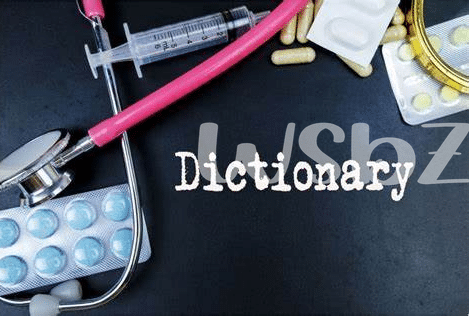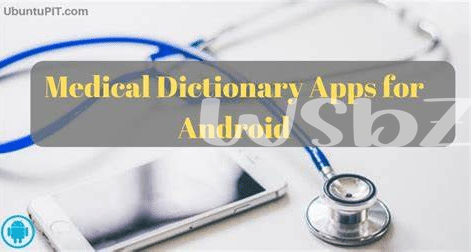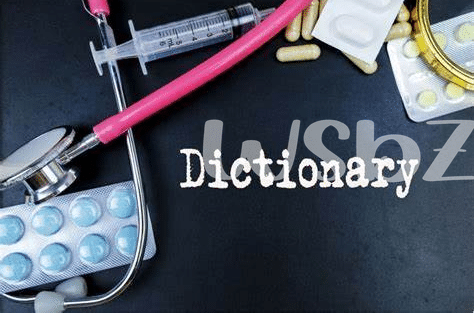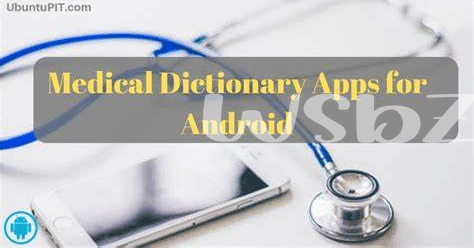- Top-rated Medical Dictionary Apps for Quick Reference 📚
- Features to Look for in a Medical Dictionary App 🔍
- Benefits of Using Medical Dictionary Apps in Practice 💡
- Comparison of the Best Medical Dictionary Apps 📊
- User-friendly Interface and Ease of Navigation 🖥️
- Tips for Integrating Medical Dictionary Apps into Daily Workflow 🔄
Table of Contents
ToggleTop-rated Medical Dictionary Apps for Quick Reference 📚
Medical dictionary apps are essential tools for healthcare professionals, offering quick and reliable reference to medical terminology, drug information, and procedures. These apps provide a vast database of medical terms at the users’ fingertips, allowing for efficient and accurate searches to enhance patient care. By utilizing top-rated medical dictionary apps, healthcare professionals can access comprehensive information on diseases, symptoms, treatments, and medical procedures in real-time, saving valuable time during clinical practice. These apps serve as invaluable resources for expanding medical knowledge, ensuring accurate communication within healthcare teams, and educating patients about their health conditions. Featuring user-friendly interfaces and search functionalities, these apps offer convenient access to medical information anytime, anywhere, making them indispensable tools for busy healthcare professionals.
| Medical Dictionary App | Rating | Features |
|---|---|---|
| App 1 | 5 stars | Extensive medical database |
| App 2 | 4.8 stars | Offline access |
| App 3 | 4.5 stars | Bookmark and note-taking features |
Features to Look for in a Medical Dictionary App 🔍
When choosing a medical dictionary app, it’s essential to look for features that enhance your clinical practice. A comprehensive database with up-to-date medical terminology is crucial for accurate information retrieval. Additionally, an app that offers pronunciation guides can aid in learning proper terminology usage. Search functionality with autocomplete suggestions can save time during busy shifts, while bookmarks and history tracking help revisit previously searched terms efficiently. Integration with external sources for further research or cross-referencing can enrich your medical knowledge. Lastly, customizable settings for font size, themes, and offline access are beneficial for personalized user experience and convenience.
Moreover, an intuitive user interface plays a significant role in the usability of a medical dictionary app. Streamlined navigation and a clean layout contribute to a seamless browsing experience. Interactive features such as quizzes or flashcards can facilitate continuous learning and retention of medical terms. Regular updates to include the latest medical jargon and advancements in healthcare ensure the app remains a valuable resource over time. Prioritizing apps with reliable sources and citations adds credibility to the information provided, promoting trust among healthcare professionals. By considering these features, healthcare practitioners can make informed decisions when selecting a medical dictionary app that best suits their professional needs.
Benefits of Using Medical Dictionary Apps in Practice 💡
Medical dictionary apps provide a multitude of benefits for healthcare professionals in their daily practice. One of the key advantages is the convenience of having a vast array of medical terms and definitions at their fingertips. With just a few taps on their Android device, healthcare professionals can quickly access accurate and up-to-date information, saving time and enhancing efficiency in patient care. Additionally, medical dictionary apps allow users to stay informed about the latest terminology and advancements in the medical field, helping them to provide optimal care to their patients. The ability to search for specific terms and definitions within seconds not only improves workflow but also aids in better communication among healthcare team members and with patients.
Another significant benefit of using medical dictionary apps is the opportunity for continuous learning and professional growth. Healthcare professionals can expand their knowledge base, improve their understanding of complex medical terms, and strengthen their clinical decision-making skills. By leveraging the features of these apps, such as audio pronunciations, images, and examples of usage, practitioners can enhance their comprehension and retention of medical terminology. This continual reinforcement of medical knowledge contributes to ongoing professional development and fosters a culture of lifelong learning within the healthcare community.
Comparison of the Best Medical Dictionary Apps 📊
When looking to choose the best medical dictionary app for your needs, it’s essential to consider various factors to ensure you make an informed decision. Key aspects to compare among the top options include the comprehensiveness of the medical terminology database, ease of use in searching for terms, availability of offline access for on-the-go reference, and additional features like pronunciation guides or medical word of the day notifications. Evaluating these aspects will help you determine which medical dictionary app would best suit your practice and provide the most value in enhancing your medical knowledge and workflow efficiency. For a detailed comparison of the best medical dictionary apps currently available for Android users, check out this comprehensive guide to make an informed choice for your professional reference needs.
To explore further on top-rated medical dictionary apps and find the most suitable one for your practice, along with essential features to look for in such apps and tips for integrating them seamlessly into your daily workflow, visit AndroidUKNews etc. You can also discover more about the latest radar apps in English for Android users and find out which are the best radar apps for 2024 in their top 5 recommendations.
User-friendly Interface and Ease of Navigation 🖥️
User-friendly interface and ease of navigation are crucial aspects to consider when choosing a medical dictionary app to integrate into your daily workflow. A well-designed app should have intuitive navigation features, clear layout, and a search function that is easy to access. The app’s interface should be visually appealing and user-friendly, ensuring quick access to the information you need without any hassle. Additionally, customizable features such as bookmarking frequently used terms or creating personalized word lists can further enhance the user experience and streamline your usage. Prioritizing these aspects will not only save you time but also contribute to a more efficient and seamless reference tool in your medical practice.
| Feature | Description |
|---|---|
| Intuitive Navigation | Easy-to-use menus and search functionalities for quick access to medical terms. |
| Clear Layout | Well-organized information display for easy readability and efficient browsing. |
| Customizable Features | Ability to bookmark terms, create personalized lists, or customize settings to suit individual preferences. |
Tips for Integrating Medical Dictionary Apps into Daily Workflow 🔄
Tips for integrating medical dictionary apps into your daily workflow include customizing your search preferences to prioritize commonly used medical terms, setting up quick access shortcuts on your device for seamless referencing during patient consultations or research, and utilizing the app’s bookmark feature to save relevant terms for future use. Additionally, consider incorporating regular practice sessions where you challenge yourself to look up new terms or test your knowledge of existing ones. Another helpful tip is to explore any additional features offered by the app, such as pronunciation guides or interactive quizzes, to enhance your learning experience and retention of medical terminology. By incorporating these tips into your daily routine, you can efficiently leverage the benefits of medical dictionary apps to enhance your professional practice and expertise without any hassles.




